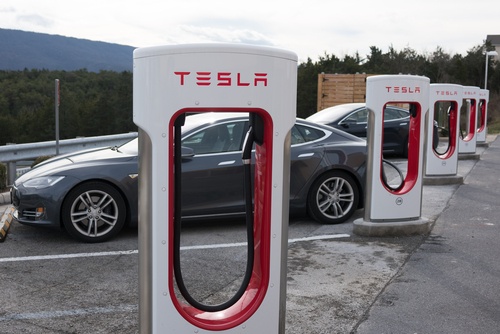Key Takeaways:
- US electric vehicle (EV) sales dropped by 5% in April, marking a rare decline.
- Tesla’s sales fell by nearly 13%, while Rivian’s sales halved.
- Traditional gas-powered vehicles saw a 10% sales increase.
Electric Vehicle Sales Hit a Speed Bump in April
After years of rapid growth, the electric vehicle market in the US saw an unexpected slowdown in April. Sales dropped by about 5%, according to data from Motor Intelligence, even as the overall car market grew by double digits.
Tesla and Rivian Lead the Decline
Tesla, which usually dominates the EV market, experienced a 13% sales decline. Rivian, known for its electric trucks and SUVs, saw its sales cut in half, prompting the company to reduce its 2025 production targets by 5,000 units.
Why Are Sales Dropping?
The main issue seems to be price sensitivity among consumers. Rivian’s CEO, RJ Scaringe, noted that buyers are seeking more affordable options. This shift comes as carmakers have scaled back subsidies and discounts.
Inflation, higher interest rates, and practical challenges like charging times are also deterring potential buyers. The withdrawal of government incentives and policy changes under President Biden, compared to President Trump’s approach, have further impacted the market.
Gas Cars See a Resurgence
While EVs stumbled, traditional gas-powered cars saw a 10% sales increase. Dealers reported growing stocks of unsold EVs, indicating weaker demand after years of hype.
Mickey Anderson, head of Baxter Auto Group, noted that past EV demand was artificially inflated by discounts. He believes the real demand is about half of what was previously seen.
The Future of EVs
The sudden drop in EV sales raises questions about the industry’s future. Carmakers are now facing a market where subsidies are shrinking, and consumers are more cost-conscious.
Gas cars are benefiting from improved fuel efficiency and lower prices, making them attractive again. However, the long-term commitment to electrification remains strong, even if the road ahead is bumpier than expected.
What’s next for electric vehicles? Only time will tell, but for now, the market is hitting the brakes.
